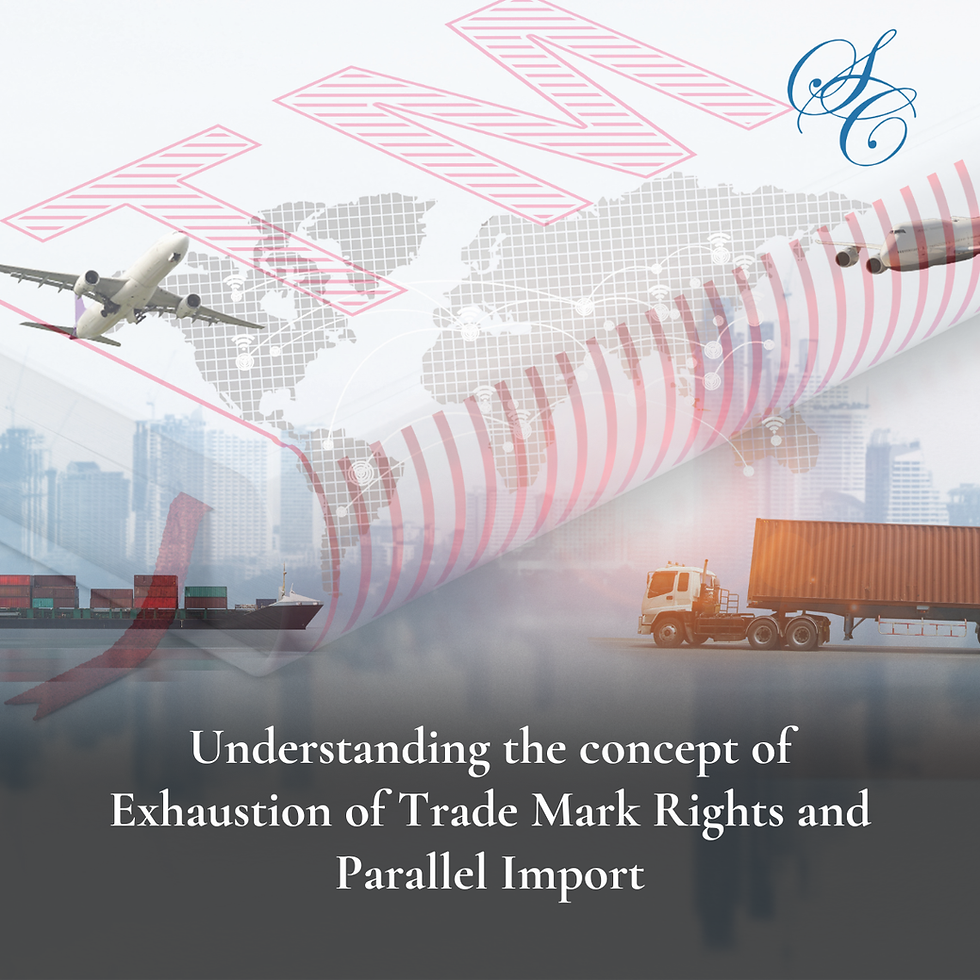Clinching the Delhi High Court’s Territorial Jurisdiction in Copyright and Trademark Suits
- Sarwajeet Singh
- Dec 20, 2016
- 2 min read
This post examines trends emerging from the Delhi High Courts’ decisions of 2016 on the subject of territorial jurisdictions in trade mark and copyright matters, and analyses what complainants should do to avoid an outright rejection of the suit for a lack of territorial jurisdiction.
The surest way to fulfill the Delhi High Court’s territorial jurisdiction requirement is to show that a part of the injury suffered by the Complainant has been suffered in Delhi. In recent decisions, the High Court has made it clear that the complaint must clearly explain as to how a part of the injury has been suffered in Delhi, and not merely make the unexplained assertion that it has. This is a significant departure from precedent that required the complaint to merely assert, without substantiation, that a part of the injury has been suffered in Delhi, and leave further elaboration to be done at trial, and not when the complaint is filed.
If one cannot show that a part of the injury suffered by the Complainant has been suffered in Delhi, the complainant is left at the mercy of the nuances of statutory interpretation. Depending upon the inclination of the judge to strictly go by what the statute says, the extent to which the judge adheres to the Supreme Court’s decision in IPRS v. Sanjay Dalia, how the judge interprets the legislature’s intent, and the familiarity of the judge with precedent on internet jurisdiction, the court could reach a different conclusion. In such situations, it would serve the complainant well to research the position taken by the judge before whom the matter is listed in his most recent decisions, and seek permission to amend the complaint accordingly, if required. In other words, realism is the best route. By doing so, though the complainant risks compromising the likelihood of obtaining an ex-parte order on appeal, the complainant could, at least, avoid an outright rejection of the suit.
Therefore, to avoid a situation where the court does not hear arguments in relation to the grant of an ad-interim injunction because it is not convinced that it has territorial jurisdiction, the complainant should make an effort to investigate if the defendant has any commercial presence, has carried out any professional or business activity, has solicited work, or rendered services under the impugned mark, in Delhi. And as discussed above, to avoid being at the mercy of statutory nuances, it is crucial for the complainant to include details of such an investigation in the complaint.




Comments